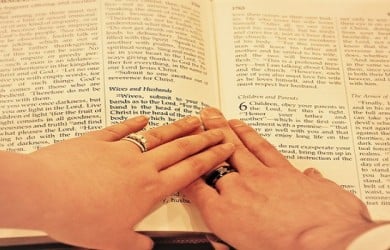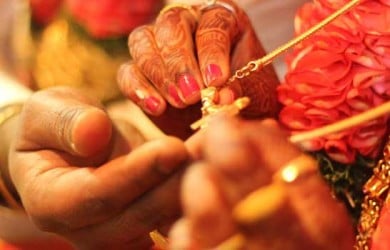Things to do When Planning a Non-religious Marriage Ceremony

 Listen to this article
Listen to this articleSo you and your partner have decided that you are really serious about your relationship and you would like to take things between you to another level. However, for your own reasons you do not want to do it the conventional way, so you are planning a non-religious marriage ceremony. Here are a few pointers which might be helpful to you as you prepare for your special day.
Choose a good venue
Wedding venues are as plentiful as the places you live and play every day. If you don’t want to get married in a church, there are community halls to hire, or hotels and resorts, depending on your budget. If you are an outdoors kind of couple, you might choose to tie the knot in a park or nature reserve, on top of a mountain, or beside a gently flowing river, or perhaps a beach wedding. Maybe you’d like to have something quiet and intimate with a few friends and family at home in your backyard or garden.
The venue you ultimately choose would need to be aligned with the number of guests you would like to invite, as well as being within your budget. If you are planning to hire a photographer and take lots of photos, make sure the venue is conducive and has a suitable setting for beautiful pictures. Probably the most important consideration when it comes to venue is that it should be somewhere you both enjoy and will be able to make happy memories together to keep for the years ahead.
Discuss the money matters
Speaking of budgets, when you are planning a non-religious marriage ceremony, it is essential that you discuss the costs and especially who is going to pay for what. You cannot take it for granted that your families on either side will help with expenses. Open communication will help you to know what you have to work with and how to plan accordingly. Prioritise your expenses and decide which are your non-negotiable items and which are the areas where you may be able to compromise.
Find the right officiant
Finding the right officiant will be key to the success and smooth running of your non-religious marriage ceremony. Seeing as you don’t want a religious ceremony, you will need to find someone other than a priest, rabbi or minister to officiate. Depending on the legal requirements of the country in which you live, you may consider asking a retired magistrate or judge to perform the vows for you. It should be someone you feel at ease with and who understands the kind of ceremony you are planning and looking forward to.
Recommended – Online Pre Marriage Course
Plan a personal ceremony
When it comes to the actual ceremony, this is where you can bring in all your personal preferences and plan a creative and unique non-religious wedding ceremony. Firstly, you will probably want to write your own vows, or you may search the internet for ideas of standard secular marriage vows. Instead of singing hymns and reading sacred scriptures, you could choose your own favourite songs and readings or quotes from your favourite books. The ceremony may also include some symbolic gestures or rituals such as the lighting of a unity candle. This is where each partner holds their own candle and then uses it to light a larger central candle together, symbolising the merging of their lives.
An alternative you may prefer to the unity candle might be a sand ceremony. This is where each partner has a container of colored sand which they pour simultaneously into a larger central container such as a glass vase. As the two colors flow together they will blend and form beautiful swirls and layers. This attractive container can then be sealed and placed in your home as a daily reminder of the way your lives have now joined together.
Some couples have included a special wine and letter ceremony in which they place in a box and seal up a bottle of wine and letters they have written to one another. This remains sealed until their anniversary in one or two (or even five or ten) years time when they will open it up and celebrate their marriage once again.
Decide what happens after the ceremony
Part of the planning process would be to decide what happens after the ceremony part of your non-religious marriage. Will you and your guests adjourn to another venue for refreshments, or will you remain in the same venue? Will you provide a full meal, or just snacks and drinks? Will there be dancing and speeches, or not? Bear in mind that some of your guests may not be familiar with the way you are choosing to celebrate your marriage, so it is important to communicate your expectations clearly at all stages throughout the process.
 Tips
Tips
Write your tip or submit a video tip
All tips are reviewed before the publishing.
Share this article on
Want to have a happier, healthier marriage?
If you feel disconnected or frustrated about the state of your marriage but want to avoid separation and/or divorce, the marriage.com course meant for married couples is an excellent resource to help you overcome the most challenging aspects of being married.
























 We'd love your feedback!
We'd love your feedback! Thanks for your feedback!
Thanks for your feedback!
